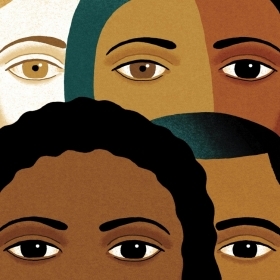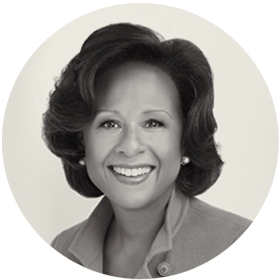Photos by Lisa Abitbol
Students are ready to talk. Specifically, about issues related to social justice. That’s one of the first things Inés Maturana Sendoya learned during her listening tour on campus after arriving in 2018 as associate dean of students for inclusion and engagement.
They had these conversations with friends, but “they wanted to have something more formalized from the institution,” Maturana Sendoya says. So she and Karen Shih, assistant dean of intercultural education and advisor to students of Asian descent, decided to pilot a program where student facilitators would be trained to run workshops around issues of identity. They were thrilled when, for the initial cohort of 12 facilitators, more than 35 students applied. And so Wellesley’s Inclusion Initiative was launched in the fall 2019 semester.
To become a community inclusion facilitator (CIF), students first go through a rigorous semester-long training program. Shih emphasizes that the CIFs are paid for their time. “We wanted to make this accessible for students of all different [socioeconomic statuses],” she says. Their training includes team-building, learning facilitation skills, and taking part in all the 90-minute workshops they will eventually lead, like “Privilege, Oppression, and Identities,” “Race and Racism,” and “Disability/Ability Awareness.” Maturana Sendoya and Shih worked with an outside consultant to create the materials for the workshops and have tailored them for Wellesley students. After the semester of training, the CIFs are available to lead workshops requested by the community, working in pairs.
Matilda Berke ’21, who was in the first cohort of CIFs, explains why she wanted to take part. “Wellesley’s a fantastic community. Everyone has the best intentions. But like any college campus, it can get a little bit siloed, and people obviously tend to hang out with people who share their interests, share their identity,” Berke says. She hoped to “facilitate that connectivity on campus, and to facilitate really a truer sense of community than what we already have.”
Since the Inclusion Initiative began offering its workshops in the spring 2020 semester, interest has been intense. Groups that have requested workshops include the crew team, Shakespeare Society, res life teams, the Davis Museum’s student workers, and more. Requests were coming in so quickly that Maturana Sendoya and Shih hired Jenna Hua ’22, a CIF from the first cohort, as a student coordinator. Apart from when the College paused after COVID hit in March 2020, the workshops have been running nonstop. During fall 2020 alone, Hua estimates that more than 400 students attended an Inclusion Initiative workshop. “From the way that [the spring] semester has been going, it seems like it’ll be that way again, which is good news for us, and says a lot about Wellesley,” Hua says.
Being a CIF is extremely rewarding, the students say. Karen Alvarez Julian ’21, a co-house president of Tower, remembers one workshop she co-led in her res hall on race and racism. She was excited by the number of students who showed up because they knew her as HP. “Sometimes we don’t even think about how much people really feel [our] energy. … That’s when I realized how powerful CIF is, and the program is at making these conversations and making these spaces that we need, that otherwise we would not have.”
The skills the students learn as CIFs are extremely valuable, too, they say. “The ability to have those conversations, the ability to construct narratives about social issues in a way that people will understand. … I think, it’s a crucial skill in life,” Berke says. “It’s something that would make our world a much better place no matter what field you’re going to go in.”








We ask that those who engage in Wellesley magazine's online community act with honesty, integrity, and respect. (Remember the honor code, alums?) We reserve the right to remove comments by impersonators or comments that are not civil and relevant to the subject at hand. By posting here, you are permitting Wellesley magazine to edit and republish your comment in all media. Please remember that all posts are public.